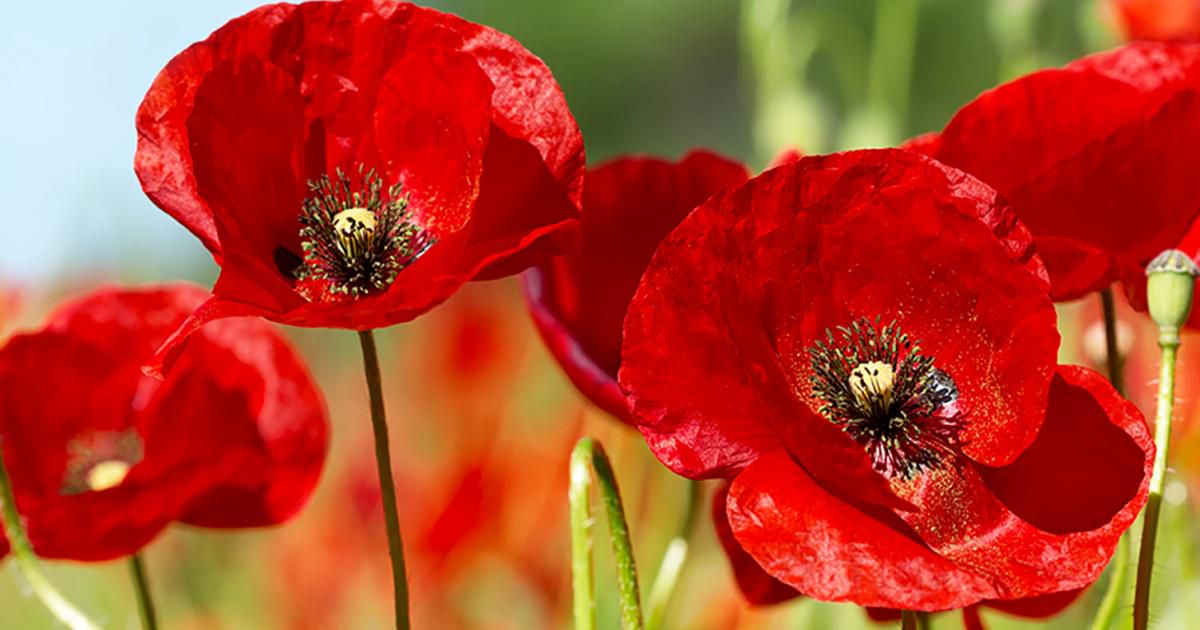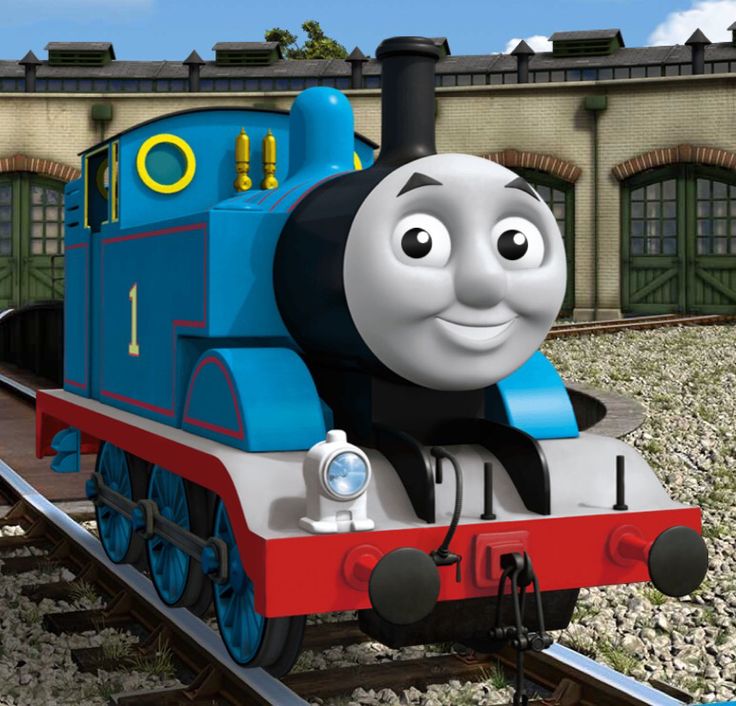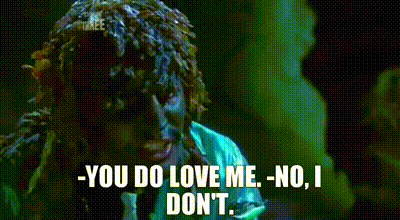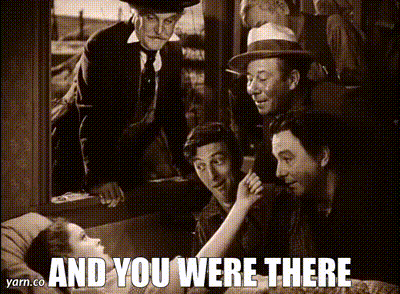29. Arrival
Quote
The song lyrics at the start are from "Let It Be", a 1970 single by The Beatles and the title track to their album of the same name. Paul McCartney wrote it after having a dream about his mother, Mary McCartney, who died when Paul was 14.
He'd been having a very tense time recording the White Album in 1968, and his mother appeared to him in a dream, saying, "It will be alright, just let it be." Paul felt very blessed by the dream, and there is a (deliberate?) confluence of the Virgin Mary (Mother Mary) and Mary, Paul's mother, in the song. McCartney has said people can interpret it either way.
I was always planning on using this quote for this chapter, as dream messages from a mother at a time of 'trouble and darkness' are so important in Between Life and Death.
https://youtu.be/CGj85pVzRJs
Date
I had originally intended to leave the date of the main action in the story vague – just some time in the '90s before Julian and Noel formed The Mighty Boosh.
However, once I set Julian's drowning in November (the time of year associated with death) and on a Friday that was also near the full moon, I realised that I had now dated it to the only day in the 1990s that was possible according to the calendar – the 6th of November 1992. Note the connection again with the number 6, the number of soulmates, and Friday, the day of the love goddess Venus.
1992 was actually earlier than I had intended, and meant that the timeline in the story doesn't quite match that in the outside world. Julian and Noel were originally supposed to be slightly older than 19 and 24, and Noel didn't see Julian perform this soon in real life.
However, after some standard fretting, tons of research and getting out the calculator a billion times, I decided that even if Noel hadn't seen Julian perform in 1992 it could have been possible. Maybe. Noel might have been at college in Buckinghamshire then, and Julian might have left university by then – I do know that Julian dropped out of uni to begin stand-up comedy.
I don't actually know the dates that everything happened in their lives, and to be honest, whenever they talk about it the timeline doesn't really make sense to me. So I'd almost finished the story before I realised when it was set, and it is very much fiction.
His Mother's Voice
When Julian first wakes up in the Afterlife, he believes his mother is with him, and he can hear her voice saying, "It's alright, love. I'm not not going anywhere. I'll be right here until you wake up."
So of course when he wakes up it is his mother's voice he hears first, with a strange underwater sound to it as he rises out of the depths of his drowning into the light of day. And of course Julian's mum is right there waiting for him, just as she promised. How could anyone have doubted her?
Julian has dreamed of his mother saying some pretty intense and dramatic things while he was in the Afterlife, but now that he begins to wake from his coma, he hears her say, "Oh thanks, love. I could murder a coffee if you don't mind getting me one." Far more prosaic! And yes, that's a deliberate death joke!!!!
The few words that Julian exchanges with his mother when he wakes up for the second time exactly mirror those that he exchanged with his Healer, Mary Gideon, when he woke up in his House of Healing.
You'll remember that Marcus told Julian that the living were not able to communicate with the dead, so right from the first chapter I was letting readers know that Julian was not dead! (I wasn't making any such claims about communication between the living and the dead in real life, I should probably add; it was purely for the purposes of the narrative.)
Waking From a Coma
I did a lot of research about what to expect when someone wakes up from a relatively short coma. What I discovered is that absolutely anything can happen, so if you want a particular outcome in a story about comas, put it in, because trust me, it's definitely occurred in the real world at least once.
I mean, I read some crazy-sounding stories, including a woman who they'd decided was now completely brain dead and could be safely unplugged from the machines and allowed to die in peace. Half an hour later they found her sitting on the edge of the hospital bed asking for a cup of tea! She went home a few days later.
However, what I describe about Julian waking up is the more typical process. In movies, people wake up from comas looking a bit dazed, ask what year it is, then recognise all their loved ones and start crying as they hug. In real life, it's more common for the person to wake up in stages, and continue falling back into the coma for a while.
Something that's usually left out of the movies is that people are often agitated or even aggressive when they wake from a coma. They may have paranoid delusions that their family have been holding them captive and drugging them, so it's not that unusual for them to start swearing and trying to hit their loved ones rather than hug them tearfully! You'll notice that Julian's sister is quite wary of him, and says he's been "getting worked up" and it was "scary".
The waking process on Earth is very much like what Julian experienced when he was waking up in the Afterlife – taking a couple of days or so, and requiring little dips back into unconsciousness as part of the recovery. This chapter is the last one of the first section of the story, so Chapter 1 and Chapter 29 act as bookends showing the transition between Earth to the Afterlife and back again.

Poppy
Nurse Gopal has a poppy pinned to her uniform to show that it is around Remembrance Day. On November 11, it is the anniversary of the end of the First World War and commemorates all those who died in combat. Poppies are worn as a sign of respect.
The poppy was chosen as the symbol of Remembrance Day because of the poppies growing in the fields in northern France and Belgium where major battles were fought. They bring to mind the blood shed there, but are also a symbol of the beauty of life and death. In Greek mythology, the poppy was the flower of the Underworld and represented sleep, death and resurrection, so it's a good fit.
At some point it became apparent to me that Julian's ordeal should take place at this time of year because he symbolically dies, goes to the Afterlife, and is symbolically resurrected. And memory is such an important part of the story that Remembrance Day seems very apt.
It you follow the clues in the story, you will know that when Julian wakes up for the second time and sees Nurse Gopal it is the morning of Tuesday the 10th November, the day before Remembrance Day.

The Hospital
When Julian asks Nurse Gopal where he is, she tells him he is in the Royal Something-or-Other. This is a callback to Chapter 1, when Julian asks Mary Gideon where he is. He expects her to say that he is in "Saint-Something-or-Other's or The Royal Whatsit". Of course these names get switched about (more mirroring!) and he wakes up at the Royal Something-or-Other.
The hospital's name is a vague allusion to The Royal Berkshire Hospital in Reading, and Nurse Gopal wears a dark blue uniform like theirs. However, it is fictional and it is never established that Julian's ordeal took place in Reading.
Nurse Gopal informs Julian that he has been moved out of ICU, and that's why it looks "different". Of course we know better! Julian isn't in a standard ward, so he must be in HCU – a High Care Unit. He's out of immediate danger, but still needs a lot of looking after (which we don't see because this isn't a hospital story, you have to infer it.)
Mother Mary
When Julian's nana comes to visit him, the poor old lady looking very tired and frail after everything she's been through, she tells Julian that "Someone Up There" must have been taking care of him. Of course wise old nana is absolutely correct!
Julian drowsily answers "Mother" and then adds "Mary" with a lot less confidence. He knows his mum has been with him every step of the way, but some part of him remembers that Mary Gideon saved him in the Afterlife. Nana misunderstands, and agrees like a good Catholic that "Mother Mary and all the saints" would have been looking out for him. Quite a good way to think of Mary and everyone at the Waystation, I think!
I might as well confess that this is the real reason that Mary Gideon's first name is Mary – for this bit of dialogue and to fit in with the lyrics of "Let It Be".
Where Is My Mind?
Julian hears his sister listening to this 1988 song by American alternative rock band The Pixies on her Walkman. As well as being a comment on Julian's mental state and one of my favourite songs, it also seemed a plausible album for Julian's sister to be listening to in 1992 (it's their debut album, Surfer Rosa, a major influence on the grunge movement).
Julian's sister becomes worried when Julian starts talking about "Pixies", suggesting that he's been saying some very odd things while he's been coming out of the coma. We know that he was talking about Noel being an angel not long after he woke up the second time, and some of his groggy memories from the Waystation may have sounded a little off-the-wall.
https://youtu.be/OJ62RzJkYUo
T-Bone Wilson
When Julian jokes to his sister that "word on the street" is that they are the "hardcore of the gang" at the hospital, she mocks him by saying, "Who do you think you are? T-Bone Wilson?"
Philip 'T-Bone' Wilson was a Guyanese-British poet, playwright, and actor. He was one of the (justifiably) 'angry young poets' of the late 1960s, denouncing systemic racism and calling for radical change.
This dialogue is taken directly from "Killeroo", the first episode of The Mighty Boosh TV show:
VINCE (Noel): You're Fossil's bitch. That's the word on the street.
HOWARD (Julian): Word on the street? Who are you? T-Bone Wilson?

Blue Train
Julian's sister tells him that their father brought John Coltrane's highly-regarded 1958 album Blue Train with him and played it at the hospital hoping that it would wake him up. At this point the reader may well wonder if this explains why John Coltrane turned up at the Waystation to send Julian and Noel home.
Did his brain put Coltrane there under the influence of the music – or did John Coltrane, the Supreme Justice of the Universe, influence Julian's dad to bring the album with him so that the magic of his music might help bring Julian back to Earth?
This is a reference to the "Bollo" episode of The Mighty Boosh TV show. After Howard/Julian is accidentally taken to the Afterlife by Phil the Grim Reaper, they have a funeral for him at the zoo.
Vince/Noel says during his eulogy, "He asked me to play Blue Train by John Coltrane at his funeral. I couldn't really find that. Sorry Howard. But I found another song about a train".
He then plays the theme music to the Thomas the Tank Engine children's TV show instead. For the uninitiated, Thomas the Tank Engine is painted blue.
The Mirror Explained, Part 1
While talking to his sister, Julian has the sudden realisation that she looks and acts a lot like their nana – both have an oval face, high cheekbones, very straight back and good posture, and an economy of movement. Then when she embraces him he experiences fleeting memories of a stained glass window, a sprig of rosemary, polished wood. Not only can he not connect these memories to anything else, but they are painful and he instinctively shrinks from them.
These memories are from the first time Julian looked in the Mirror at the Hall of Mirrors. It was supposed to show his family five years after his death to show how they had coped and healed in the intervening years, but instead he witnessed a funeral of an elderly woman, and couldn't recognise anyone there. The old woman in the open casket looked like his nana but older, and had clothing, hairstyle and a tattoo that Nana definitely wouldn't choose.
Now we can see that the elderly woman was Julian's younger sister, and the Mirror faithfully showed Julian's family five years after his death – but it's so far in the future that he can't recognise any of them. Julian's sister is five years younger than he is, and dies five years after he does, so at the same age. We don't know exactly how old that is, but it is older than Nana, who must be at least 70 and may be closer to 80.
The other people at the funeral who he can't recognise even though they look familiar are therefore Julian's relatives who haven't been born yet. There is a young mother with a toddler called Andy, named after Julian's father. She might be Julian's future grandniece, and her son his great-grandnephew.
Lining up to pay their respects are a pair of middle-aged men who look so alike that Julian knows they must be brothers, and have all the hallmarks of being members of the Pettifer family. These men are Julian's twin sons, Walter and Arthur, who were born in 2007. If they are 55 in the Mirror scene, the year would be 2062, meaning that Julian died in 2057 when he was 89 – the same age as Edith when she passed.
Another confession. This is not my usual way of doing things, but I chose "Calling All Angels" as the funeral song by googling funeral song for a Gen X woman, as I needed it to be believable for someone of Julian's sister's generation (and I can't write future songs haha). "Calling All Angels" popped up straight away, as apparently this was the go-to funeral song for women getting buried on 1990s film and TV.
Julian sees his fragmentary memories as "smoke and mirrors" - not only to suggest that it isn't the whole truth, but because he also has a vague or suppressed memory of the smoke which fills the Mirror between uses.
The Mirror Explained, Part 2
Julian's sister tells him what happened during Julian's coma from her perspective. The hospital managed to contact them two hours after Julian was brought to hospital, telling them that six hours was the maximum Julian could be in a coma without sustaining brain damage. The family was four hours drive away (the distance between Leeds and Reading), so they were warned to expect the worst.
Julian was in a coma for two days. When I looked it up, six hours seemed to be usual time frame given for a "safe" period to be in a coma. However, people seemed to be in them for anything for up to a week and said they were perfectly fine, so perhaps doctors are being conservative. And I must say, having a doctor tell you it's fine to be in a coma for about a week sounds really laissez-faire!
At one point Julian was clinically dead for ten minutes, which means that his breathing stopped and his heart stopped beating. Apparently it's reversible if they manage to get your heart beating again within 5-10 minutes. There seems to be a plethora of news stories about people who were clinically dead for ten minutes and then went on to climb mountains, run marathons and so on, so it didn't seem too implausible for a healthy young man like Julian to survive it.
During this ten minute period of clinical death, the hospital seems to have thought they had done everything they could, but Julian was not coming back. They called the family in to say their goodbyes, and began discussing unplugging Julian from life support – I'm sure they didn't mean they would do it straight away, but while talking the family through all possible consequences. Julian's mother went mad at them.
This seems to be what Julian was shown in the Hall of Mirrors the second time. Confused by the incorrect information it had been given and Susan Meister's determined tinkering to "fix" it, the Mirror malfunctioned and showed Julian his family after his death – not five years after his death as it had already done, but five minutes after his clinical death!
You can see the Mirror could not show Julian five years after his clinical death because then Julian himself would still be alive and well! So that was a total "does not compute" for the Mirror and it did the very best it could.
"Greg"
Julian's sister tells him that it is assumed that he got drunk and fell in the lake by accident. He was brought to the hospital, wrapped in his coat, by a man who called himself "Greg", although nobody knows if that was his first name, or his surname, Gregg. "Greg" mysteriously disappeared in the midst of all the excitement, but it is assumed that he was the one who rescued Julian, since he was dripping wet as if he'd been in the lake himself.
This is a reference to the character of Old Gregg, an intersex merman played by Noel Fielding in the episode, "The Legend of Old Gregg", from the second series of The Mighty Boosh TV show. The character is discussed in Chapter 26 of this book.
Old Gregg dragged Julian down into the depths of the lake, but must have had a change of heart or guilty conscience, and was able to carry his unconscious body to the nearest hospital. It would be very difficult to carry a tall man who has been drowned and is out cold, but of course Old Gregg is not human. It's a mile from Whiteknights Lake to the Royal Berkshire Hospital, so about twenty minutes walk.
In the show, Old Gregg took Howard/Julian to his underwater cave in order to seduce him, but promised to take him back onto land if Howard/Julian agreed to marry him and start a funk band with him. Wanting to get out of the cave and being threatened with death if he doesn't comply, Howard/Julian says yes to this proposal. Julian said that in his mind, Howard would have eventually become fond of Old Gregg even though he was kidnapped and coerced.
Just as Old Gregg was planning to allow Julian back to the surface, Gregg in Between Life and Death also carries Julian to land and even saves his life, out of some form of twisted love. In the story, Julian has a feeling of revulsion and of being violated by a stranger carrying his unconscious body, in reference to Old Gregg kidnapping him due to his obsessive desire for Howard/Julian. In The Mighty Boosh show, the villains have a sympathetic side or are not that scary, so it seemed apt for Gregg in the story to redeem himself in some way.
By the way, it is not known how Noel chose the name Old Gregg for his merman character. He gets very defensive and cross if anyone enquires, in a "How dare you even ask me?" type way, and says it is not up for discussion. My theory is that the bakery that Noel got the sack from on his first day (see Chapter 15 of this book) was a Greggs Bakery, and this is his petty revenge on them!

Let It Be
At the end of the chapter, Julian is still slipping in and out of sleep, and very disturbed. He is feeling the loss of Noel like a missing limb, but has no clear memory of him. It is Julian's mother who sits by his bed and soothes him, telling him to "let go of the dreams" and trust that everything will be alright. Just as Mary healed Julian at the Waystation, it is his mother who heals his mind back on Earth.
Although Between Life and Death is a romance between Julian and Noel, I feel that the true love story in the book is that between a mother and child.
"And You Were There, and You ... !"
One clever reader thought this chapter had a real Wizard of Oz vibe, with Julian waking from a coma after being in a fantasy world, just as Dorothy wakens from being knocked unconscious. When Dorothy wakes up in Kansas, she recognises people she knows from her life on the farm as major characters in Oz, crying, "And you were there, and you were there!"
That doesn't happen to Julian when he wakes up, but when you think about it, his friends from the Wayfarers Arms were a woman of his mother's age, a man in his early sixties around his father's age, and an elderly woman like his nana. He did seem to be given a "family" at the Waystation that might feel familiar to him.
The viewer of The Wizard of Oz, like the reader of Between Life and Death, is free to imagine the fantastical adventures as a dream if they wish. However, they can also believe them to be literal truth, or something in between.

Write What You Know
My youngest brother drowned when he was a child. He was clinically dead for two minutes, but was able to be revived at our local hospital. So I do have some experience with this, and watching your mother fall apart while somehow holding it together and being the strongest person there.
My brother survived and grew up pretty healthy, and now lives a normal life. He became and always remained my mother's favourite, and like Julian's sister, I can see that being the miracle child was a big factor in that. However, he is a genuinely goodhearted and sweet person so he deserved it.
By the way, this explains why I never told anyone about my own drowning experience when I was 12 - I didn't want to bring back bad memories or awaken old fears.
The Characters
Nurse Gopal – Nurse Gopal was originally named after an old university friend of mine, Nalini Gopal. Nalini means "lotus", so I liked the idea that the lotus amulet would bring Julian back to a person named Lotus. Then I thought it was a bit cheesy, and couldn't see any way to naturally introduce Nurse Gopal's first name into the story. So I used the name Nalini for a character in a different story instead.
Julian's Family – As I've mentioned before, Julian's family in the story is only very loosely based on his real life family, and almost entirely fictional. They are not even fictional versions of what I think they might be like in real life. For example, Julian's sister did not go to university, she went to art college, and her physical description in the story doesn't resemble her except in the vaguest and most superficial way.

Bạn đang đọc truyện trên: AzTruyen.Top